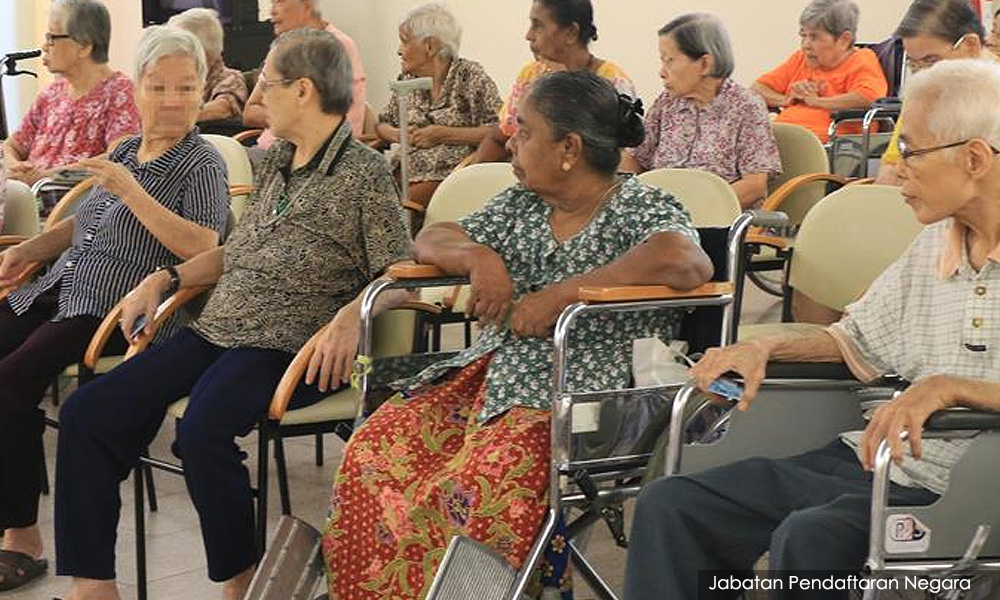
If economic barriers for women in Malaysia were removed, each person in the country could potentially get an average annual income gain of RM9,400.
This is what was stated in a World Bank report titled 'Breaking Barriers: Toward Better Economic Opportunities for Women in Malaysia' released in Putrajaya today.
"We at the World Bank believe improving economic opportunities for women can be one of the key drivers for Malaysia to fulfil its development potential.
"In fact, removing all barriers between men and women in terms of economic participation could increase income per capita by more than 25 percent.
"That is an income gain of about RM9,400 for each Malaysian," said World Bank senior economist in social protection and jobs, Achim Schmillen, at a press conference after the report's launch.
He explained that women currently do not have the same participation rate in the labour market in Malaysia and on top of that, women are also less likely to be self-employed or to be employers as compared to men in Malaysia.
"Now, if we assume that overall men and women have exactly the same talents, we have simulated what would happen if all these barriers that in practice prevent women from having the same types of jobs are removed; what would happen then to the income of the nation?
"There, our finding is that there would actually be a significant increase of about RM9,400 per person," Achim said.
Another issue in Malaysia is the low female labour participation as compared to other Asean countries, he said.
Though Malaysia has improved a lot since 10 years ago where it was very near the bottom among other Asean countries, Achim said it still has many improvements to make.
"If we look at Asean as the relevant comparison group, maybe 10 years ago, Malaysia was very close to the bottom with really very low participation rates, lower than almost all other Asean countries.
"Now, Malaysia is still not performing with the top group, not even with the mid-group but it has left the bottom group behind it and so we do see that Malaysia has made a lot of progress but we also do recognise there is a lot of unfinished business left.
"For instance, countries like Thailand and Singapore, that Malaysia might aspire to, have quite high female labour force participation rates," Achim said.
According to the report, female labour force participation in Malaysia was 55.2 percent in 2018 while male labour force participation was at 80.4 percent. This means that Malaysia's gender gaps in participation amount to 25.2 points.
Meanwhile, in Singapore and Thailand, their gender gap participation point is much lower at 14.1 and 15.2 percentage points, as stated in the report.
The report also had some policy recommendations and general directions, he said.

First and foremost, Achim said, would be expanding the availability, quality and affordability of childcare as well as elderly care in Malaysia.
Secondly, there is a need to strengthen the protection of informal workers as well as the productivity of these workers.
There are also a number of legal reforms already in the works, including the Gender Equality Act, Sexual Harassment Act, the Employment Act and other similar laws.
Then, it is also important to improve the support of parents in line with international legal norms such as increasing maternity leave to at least 14 weeks and to introduce paid paternity leave.
Finally, there is a need to address gender norm attitudes in education and among the wider population, Achim said.
World Bank Malaysia country operations officer Tan Mei Ling said they have had consultative meetings in preparation for the report with the ministries of Human Resources and the Women, Family and Community Development since May.
"Labour reforms, as well as policy recommendations, will take time to come to fruition so yes, the ministries are already actively planning as well as (forming) an inter-task force committee to implement those recommendations.
"Especially the labour reforms, they are already very much in advanced stages," she said. - Mkini



No comments:
Post a Comment
Note: Only a member of this blog may post a comment.